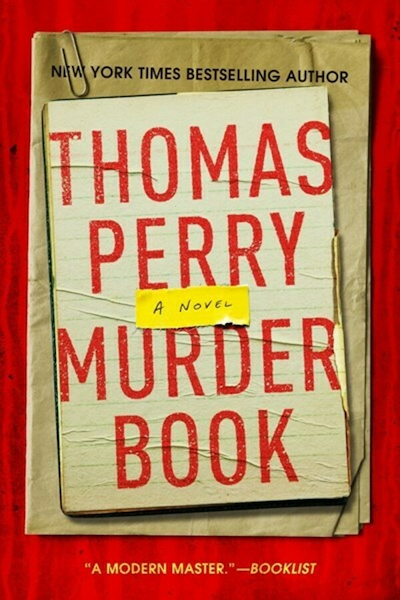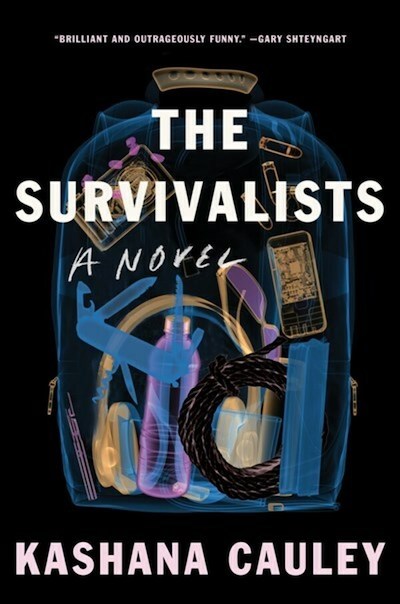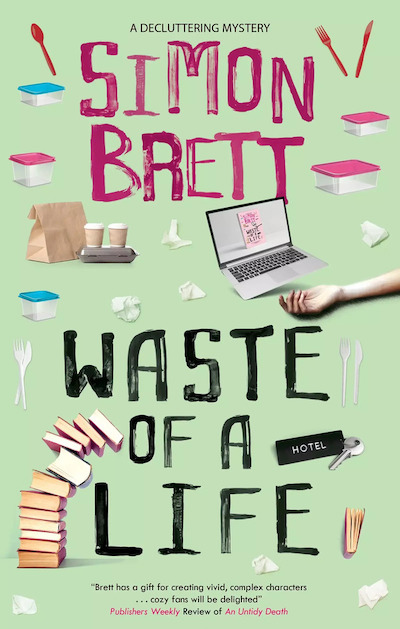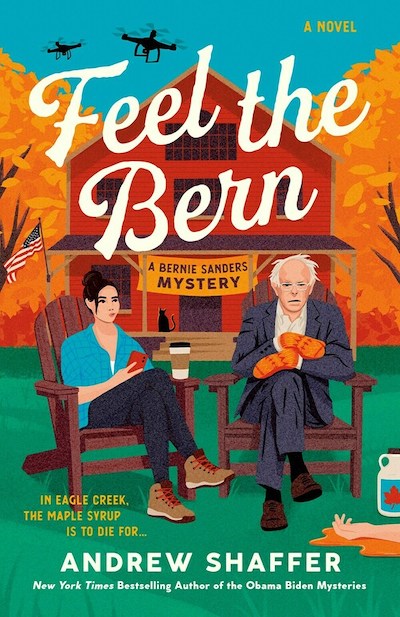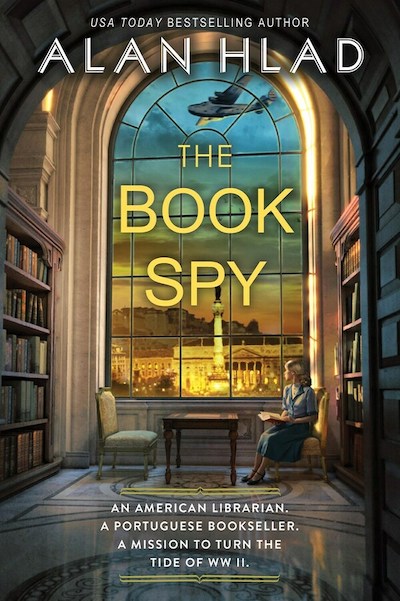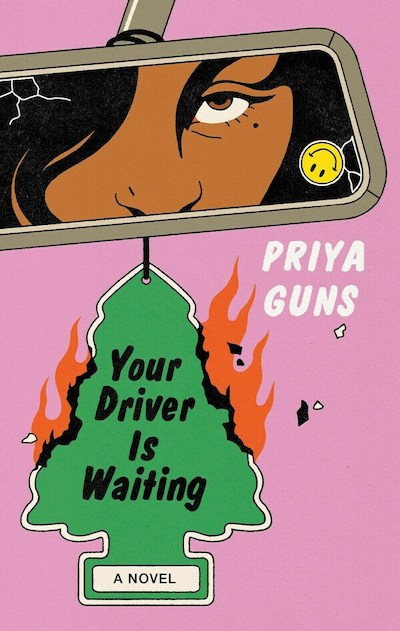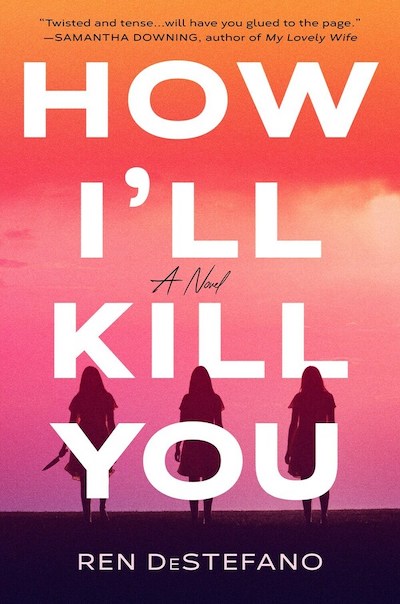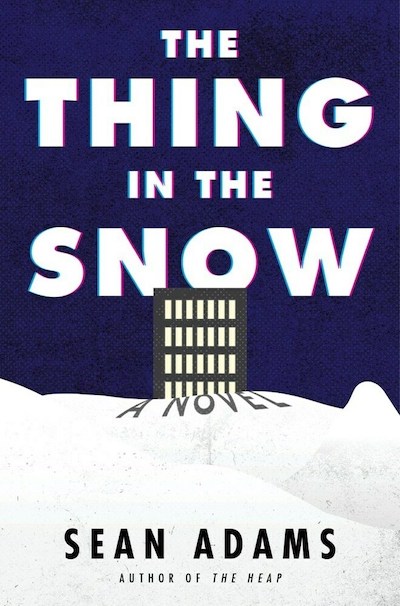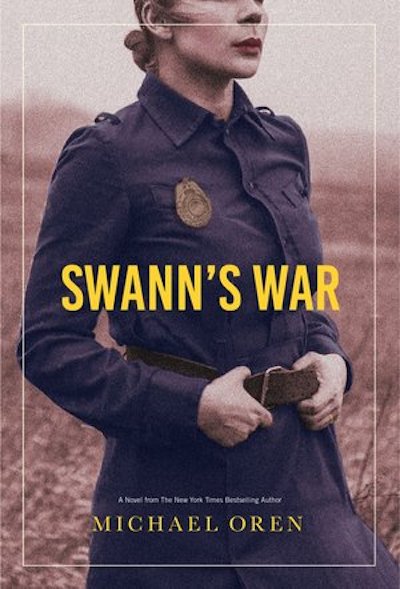It’s no wonder Harry Duncan’s ex-wife, Ellen, a U.S. Attorney, calls him when her cases need some extrajudicial help. Former cop Harry is an expert at getting himself into trouble—just the kind that suits his investigations—and getting back out, with each leg of the journey equally satisfying. His current murder book, or record of a crime investigation, opens when Ellen asks him to hit the road on her behalf to look into what might be a new criminal organization setting itself up in Indiana. Arriving in Parkman’s Elbow, a town identified as one focus of the possible gang, Harry stops for lunch, the action finds him immediately, and his combination MacGyver/James Bond maneuvers are decidedly ON. The investigation often takes a back seat as readers get lost in Harry’s vigilante moves—defeating bumbling bad guys in ways that ridicule them, saving a woman the gang is trying to extort—and his smart evasion and tracking methods. But the case is almost beside the point when such exciting chases and devastating put-downs of criminals are on the menu. Would the police really ignore the wild things Harry does? Probably not, but you won’t care. One for a late-night binge.
Review
A little bit of a mystery, a whole lot of a thriller, and definitely a Savannah gothic, this novel is 100 percent guaranteed to creep you out. Holly and Dane are close as brother and sister, but when Dane starts having psychological problems in his final semester of college, Holly pulls back. After all, Dane now has Maura, his girlfriend who he has moved in with and who is taking care of him. But when Dane dies from suicide—he actually tried to disembowel himself—Holly spirals into a guilt-induced depression. “Get it out of me,” reads Dane’s last text to his sister. To understand what happened to Dane, Holly seeks out the mysterious and beautiful Maura, a florist obsessed with carnivorous plants and harnessing the power of botanicals. From stalking Maura to rooming with her to surrendering to her erotic powers, Holly realizes that if she doesn’t solve the mystery of what Maura did to Dane, then she will be forced to reenact it, with the same tragic results. A steamy f/f romance. Gothic vibes. A love story gone terribly wrong. Carnivorous roses. Get this title on Booktok!
Ready for something completely different? This brilliantly odd and unexpected tale sees striving corporate lawyer Aretha go on—finally!—a great date, one that doesn’t end with her crawling out the bar’s bathroom window to escape (yes, she has) or wondering mid date if she’s already dead. Aaron does arrive in the bar looking like he “[chops] wood for a living right there in the middle of Brooklyn,” but that’s not so unusual for the area. What is unusual is that he’s part of the “dead parents club.” His mom died of cancer while Aretha’s were gored by deer, but her past dates have made her less choosy. This might be why Aretha tries to chalk it down to individuality when she finds that Aaron and his housemates have built a bunker in their garden to keep safe when the world is destroyed, eat only optimized protein soy bars, and own guns (not just a few). As Aretha drops further into this bizarro world, into crime, and away from Aaron, the sadness underneath the spectacle shows itself: this tale is about the rot that sets in when you sell something that doesn’t belong to you. Plagiarism features, with housemate James a perpetrator and Aretha, in a separate event, a victim, but even worse is Aretha and Aaron selling versions of themselves that can never be. A must-read debut.
What do you remember most about a Simon Brett novel? The characters. Brett, a genius at writing traditional mysteries, has created several series over the years, all based on personalities that draw readers back again and again. These days, Brett has two series in the works, the long-standing Fethering mysteries—featuring two sort-of best friends in a very English village—and a newer series featuring professional declutterer Ellen Curtis. Having a declutterer as your protagonist is inspired: they allow for easy access into other people’s lives—through their stuff—whether those people are dead or alive. Here, Ellen has been hired to work with Cedric Waites, an octogenarian who hasn’t left the house since his wife died years ago. Yes, there are mountains of empty frozen-dinner containers, but Ellen is slowly making headway with Cedric. Only to find him, one day, dead. And not just dead, but likely murdered, with Ellen one of the suspects. The novel goes deeply into Cedric’s past, marriage, and his dealings with his awful son and even worse daughter-in-law. But more compelling is Ellen and her relationships with her two adult children, both of whom are deeply troubled, and both of whom end up moving home at some point. The publisher describes this as a light-hearted mystery. It’s not. It’s actually a darn good novel about families—the good, the bad, and the ugly—set against a murder inquiry.
I love mysteries that feature the famous, from Walt Whitman to Dorothy Parker to Eleanor Roosevelt. But featuring a living celebrity—in this case, Bernie Sanders—is even more of a challenge, one that Shaffer succeeds at wonderfully. Gen Z intern Crash Robertson is our wisecracking intern and narrator, and after months of answering phones in the DC office—from constituents who don’t know how to text?—she gets to accompany the senator on a fall-recess trip to Vermont. By chance, they head to Eagle Creek, Crash’s hometown, and end up staying in her mother’s B&B. But what has the makings of a low-key visit with constituents, and plenty of apple griddlecakes, suddenly gets upended when Crash finds the body of the local banker floating in Lake Champlain. Crash’s running commentary on Bernie—who’s always ready to deliver a lecture on the declining honeybee population, or the cozy series he’s reading, set in a cannabis bakery in the Northwest—makes for a good part of the humor in the book. But when a second citizen goes missing, it’s time for our team to get down to work. The biggest suspect is a tech-obsessed one-percenter, think Elon Musk, who’s buying up acres of maple trees, driving out local farmers, and monopolizing maple syrup production in a move Bernie dubs “Big Maple.” Unmitigated fun for everyone, no matter where they might fall on the political spectrum. Shaffer is also the author of the Obama mysteries, Hope Never Dies and Hope Rides Again.
The walled-off feeling of loneliness in a crowd pervades the pages of Hlad’s piercing historical thriller. Based on a fascinating and little-known true story of World War II, the tale sees librarians from New York Public Library sent throughout Europe to gather materials published by axis powers, photograph it, and send it via microfilm (the thumb drive of its day) back to New York to aid in overthrowing Hitler. Our hero is Maria Alves, a Portuguese American who, due to her parents’ jobs as newspaper photographers, lived all over the world as a child and speaks six languages. Sent to a neutral—but still dangerous—Portugal to scour bookstores for war-relevant information, her cover is that she is working for the Library of Congress to gather materials that are in danger of being destroyed in the conflict. Under no circumstances is she to engage in spying, but that undertaking soon falls by the wayside as the extent of the horror in nearby occupied France becomes apparent. Also affected by the French occupation is Tiago Soares, a Lisbon bookseller whose Grand-père and Grand-mère in Bordeaux run an operation that smuggles Jews to Lisbon, where increasing crowds of penniless, paperless refugees await passage to the United States. Hlad’s immersive portrayal of wartime Lisbon and its inhabitants, of the loneliness caused by the terror that anybody at any time could be an informant, plus his captivating thriller/romance tale make this a must-read, especially for fans of Kate Quinn’s The Rose Code.
Damani Krishanthan’s life is drudgery. Her Amma, or mother, is housebound and expects to be waited on hand and foot, even leaving food all over her face for that extra touch of martyrdom. When not on Amma duty, Damani drives for an Uber-like service that’s taking an ever bigger cut of her proceeds, even her tips, as time goes by, so that she takes every customer who pops up, sleeping only at red lights. A few times in the book the character directly addresses the reader, telling us for example that the city that this story takes place in will remain nameless because cities are all the same now; the effect is to telegraph that she’s so tired that she can’t even maintain the façade of fictionality and will just talk to us, OK? The non-stop grind lifts a bit when Damani gets a cute customer, Jo, who then shows up at a club the cabbie goes to with friends. She’s unlike anyone Damani has dated, but the same is true for Jo, who is not used to being in spaces where she’s a minority, a situation with results that push Damani over the edge. This protagonist’s life is a slow-motion train crash that you won’t be able to look away from, and Guns paints a scathing portrait of the gig economy, both in literal terms and in terms of those considered a temporary novelty in relationships. A debut with shades of Elle Cosimano’s Finlay Donovan series, but also memorably and refreshingly unlike anything else.
I’ll admit it: it took me several tries to get past this novel’s disturbing opening scene, in which two women violently murder a man they just met and with whom they have zero connections. They stick him in the trunk of their car for a few hours, only to discover he’s not actually dead. Then they meticulously prep the body—who knew removing teeth to minimize identification was a thing?—and heave the now assuredly dead man over the side of a mountain. Turns out, this is just the latest murder of the serial killer sisters, identical 25-year-old triplets. Typically, their thing is to make men want them and fall in love with them. Then they kill them. It’s about a six-month process, and the first two sisters have racked up three murders each. But Sissy, our protagonist, has yet to make her first kill. She’s pulled her weight with her expertise in cleanup, removing any evidence that could connect the sisters to a murder site or a corpse. But she’s overdue in the murder department. The women have arrived in Arizona so that Sissy can focus on herself, and in no time she’s met the handsome, gentlemanly, church-going widower Edison. They quickly bond, and Sissy delights in her love affair with Edison as much as she enjoys imagining how she’ll kill him and where she’ll bury him. Until things change. Her desire to kill ebbs away, and her sisters grow increasingly anxious as they fear Sissy is pulling out of their agreement. A new, terrifying take on serial killers that will give fans the sleepless nights they crave.
Not a mystery, but darn mysterious. The Northern Institute is located somewhere in the far north, the only place on the planet where the temperature continues to drop while the snowfall continues to increase. At some point, the vast building held hundreds of scientists, who were presumably studying life in such an extreme climate. But after an unexplained incident, the great building was quickly shut down to researchers. Today, the only residents are three caretakers, led by supervisor Hart, and one remaining scientist. Contact with the world comes from a weekly mail drop that, in addition to food, gives them their assignment for the next week; testing all the doors to determine if any squeak is a prime example. Life for the caretakers is so unspeakably dull—except for Hart, who’s sadly consumed by becoming a better manager—that when a strange object appears in the snow, where there is nothing else on the horizon except snow, the caretakers become obsessed with it. Forbidden to ever go outside, the mysterious snow sickness is given as one reason, the three gaze longingly at the object. Is its color changing? Is it moving? While they are instructed to ignore the object, that eventually becomes impossible, even for manager-in-training Hart, and the three venture out to confront their visitor. A satirical take on corporate life and a darkly suspenseful tale of isolation.
We’re deep into the Second World War, and Archie Swann—the police officer on Fourth Cliff, a fishing island off the Massachusetts coast—is fighting in the Pacific theater. But his wife, Mary Beth, herself a cop trained by the Boston Police Department, has stepped into his position. While Archie was beloved, Mary Beth is loathed, largely because of her gender, and the easiest of tasks is a struggle. While the island has traditionally seen little crime—settling fights between drunk fishermen and resolving domestic disputes seemed to be the bulk of the work—things have changed under Mary Beth’s watch. The body of a soldier, who lived in a camp for Italian POWs on the island, is hauled up from the sea by fishermen, a murder that creates unrest among both islanders and prisoners. When that murder is followed by others, Mary Beth, whose supports are a doctor who is untrained as a coroner and a deputy who is intellectually disabled, turns to the only real help she can find: organized crime from the mainland. But the real story here is the internal one: Mary Beth’s loneliness, her longing for Archie, her need to always maintain a tough outer shell, her battle against feeling like a failure. Novels about women in the War have blossomed in the past few years, but few have the grittiness, honesty, and authenticity in emotion, language, and detail of Swann’s War.

